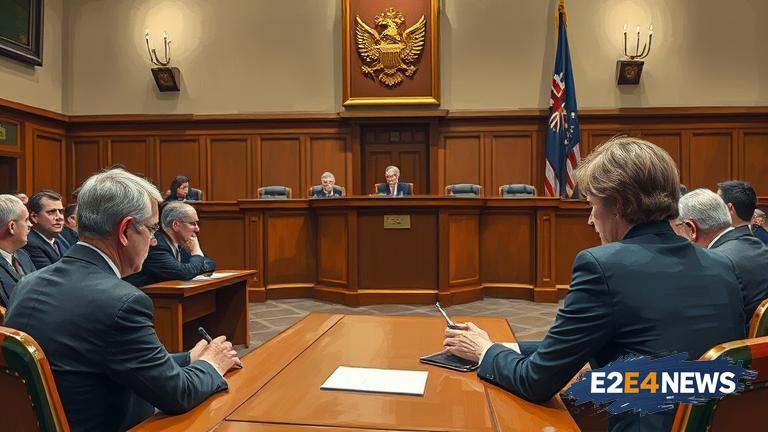The trial of Julia De Lueny has taken a significant turn as her defence team presented their case, arguing that there is no evidence to support the claims of a breakdown in her relationship with her mother. The prosecution had earlier alleged that Julia’s relationship with her mother had deteriorated, leading to a series of events that ultimately resulted in the charges against her. However, the defence team countered this narrative, presenting witnesses and evidence that suggested the opposite. According to the defence, Julia and her mother had a close and loving relationship, and there was no indication of any significant problems between them. The defence team also pointed out that the prosecution’s allegations were based on circumstantial evidence and hearsay, rather than concrete facts. Furthermore, the defence argued that the prosecution had failed to provide any credible evidence to support their claims, and that the case against Julia was largely speculative. The court also heard testimony from several witnesses, including family members and friends, who all described Julia and her mother as having a strong and supportive relationship. One witness, a close family friend, testified that she had never seen any signs of tension or conflict between Julia and her mother, and that they always seemed to be close and affectionate. Another witness, a neighbour, also testified that she had never heard any arguments or raised voices coming from the De Lueny residence, which further supported the defence’s argument. The defence team also presented evidence of Julia and her mother’s frequent interactions, including phone calls, text messages, and social media posts, which all suggested a positive and loving relationship. In addition, the defence argued that the prosecution’s case was motivated by a desire to scapegoat Julia, rather than a genuine attempt to seek justice. The court was also told that the prosecution had withheld certain evidence that could have been favourable to Julia’s case, which further undermined their credibility. As the trial continues, it remains to be seen how the prosecution will respond to the defence’s arguments, and whether they will be able to provide any credible evidence to support their claims. The case has sparked widespread interest and debate in New Zealand, with many people following the trial closely and offering their own opinions and theories. Despite the intense media scrutiny, Julia’s defence team remains confident that they will be able to prove her innocence and secure a favourable outcome. The trial is expected to continue for several more weeks, with the defence team presenting further evidence and witnesses to support their case. In the meantime, Julia remains on bail, awaiting the outcome of the trial. The case has also raised questions about the reliability of circumstantial evidence and the importance of thorough investigation in criminal cases. As the trial progresses, it is likely that these issues will continue to be debated and explored in greater detail.
